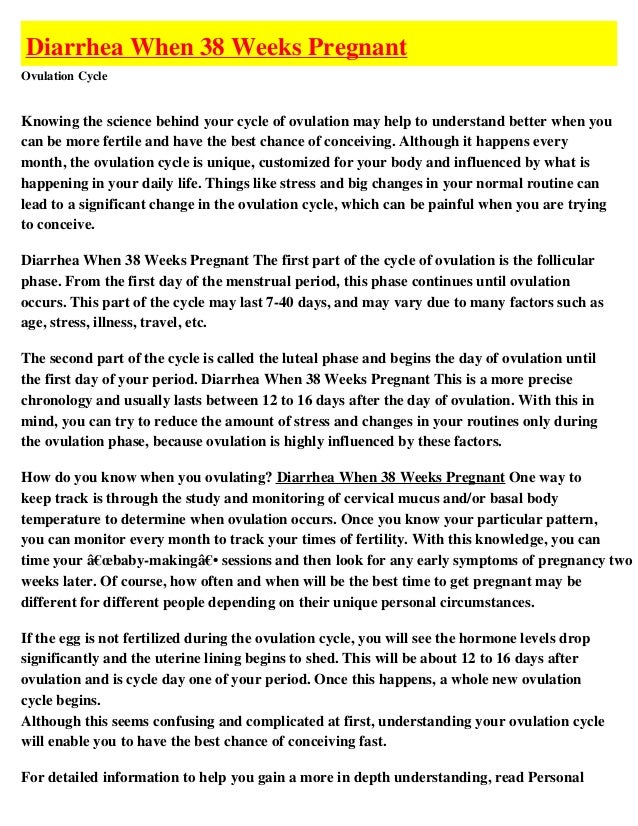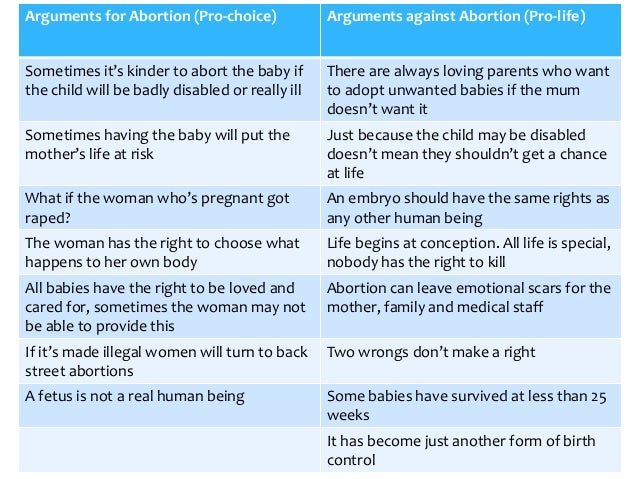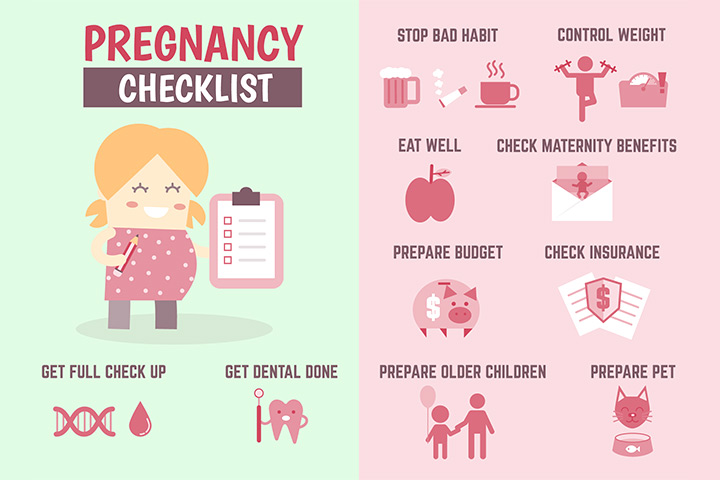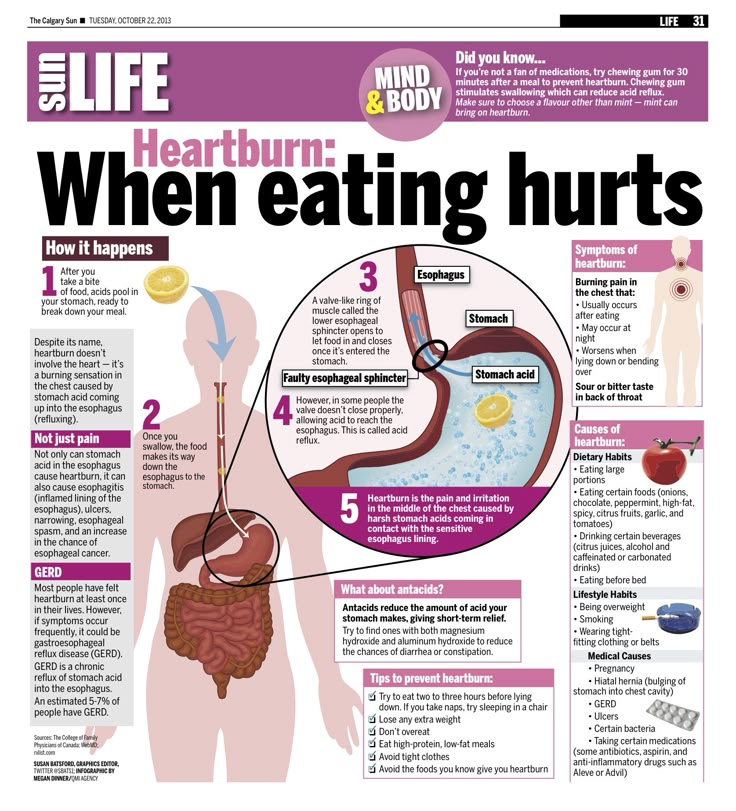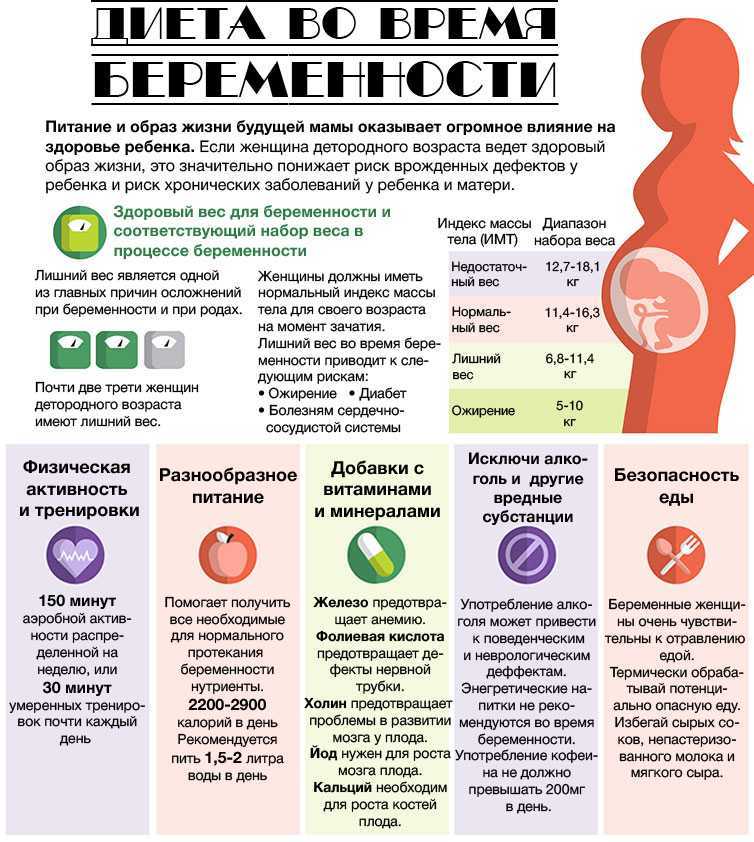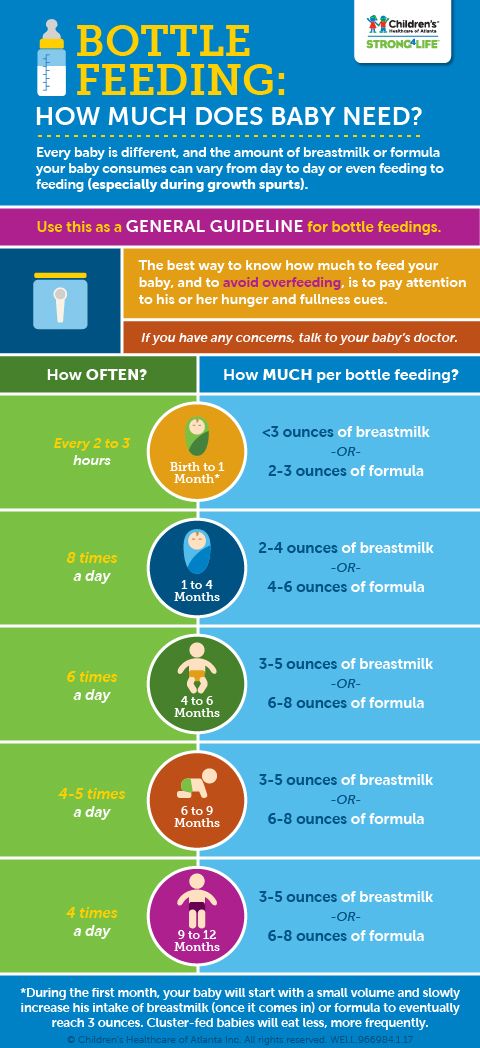Why am i not going into labor
Ugh, Why Am I Not in Labor Yet? Slow To Start Labor
As I got to the end of my first pregnancy, I was so ready to meet my baby.I’m not quite sure that I was ready to be in labor – that sounded hard – but I really, really wanted to find out what he or she looked like. Technically we didn’t know the sex, but I had three dreams where a little curly-headed blonde girl in a white dress came to me. I knew she was a girl.
I felt as prepared as I could be.
Read lots of childbirth books? Check.
Take a childbirth class? Check.
Hire a doula? Check.
One thing was missing though.
Ugh, why wasn’t I in labor yet?
I had convinced myself that I would go into labor early.
My due date was November 13 and I thought for sure this baby would want to make her entrance a week early. In my work as a doula, I’ve seen a very similar thought pattern in many first-time moms, like I was then.
I’d stopped working a few days before her due date. With nothing to do except wait for labor to begin, I was bored. I walked around a new outlet mall and bought a too expensive handbag. I fussed about the nursery, washing and rewashing and folding and refolding clothes and cloth diapers.
Sunday morning, I woke up to a really strange sensation… it must be a contraction!
My husband and I were so excited that we jumped right into action. I had our birth center bag ready. Into the car it went. I made breakfast. I folded those clothes some more. We tackled more laundry. I cleaned the house again. Labor started picking up, but the contractions never developed a regular pattern. We went for a lot of walks.
Ugh, why wasn’t I in MORE labor?
For a variety of reasons, some women have slow to start labor.
We don’t know why this happens to some women and not to others. In The Birth Partner by Penny Simkin, she describes the reasons as sometimes being from a long, thick or posterior cervix, a cervix scarred by previous surgery or injury, a uterus contracting in an uncoordinated fashion, or because the baby’s head is still high in the pelvis or in an occiput posterior position (when baby’s head is down, but it is facing the mother’s front instead of her back. It is a little harder for the baby to get through the pelvis in this position, but still totally safe.) Almost all of these situations correct themselves with time and rest.
It is a little harder for the baby to get through the pelvis in this position, but still totally safe.) Almost all of these situations correct themselves with time and rest.
When you spend almost a year – or more – anticipating the birth of your first child, it’s totally normal to be in a hurry to get things going. It’s normal to want labor to progress quickly once it has begun. Ultimately, scientists don’t know exactly what triggers labor. There are theories, of course. We don’t know why some women have fast labors and why some women have slower labors.
So much is unknown that it seems as if the Universe is giving us a message.
Surrender.
Surrender control.
Surrender expectation.
And surrender the need to know.
Finally, no one ever stays pregnant. Babies are born. Soon you’ll be holding yours and marveling at how quickly time passes.Causes, Risks, and What You Can Expect
As you reach the end of your pregnancy, you may be feeling a mix of emotions about labor and delivery. Despite any worries about what lies ahead, you’re almost certainly ready for your pregnancy to end. After all this waiting, you want to meet your baby!
Despite any worries about what lies ahead, you’re almost certainly ready for your pregnancy to end. After all this waiting, you want to meet your baby!
As your due date approaches (or even passes) if you haven’t gone into labor, you may be concerned. You might wonder if your baby is healthy, if your body is working properly, or feel like your pregnancy will ever end!
What does it mean to have an overdue baby? Are there medical risks associated with remaining pregnant past your due date? What should you expect to happen next after your due date passes?
Don’t worry, we’ve got you covered with the answers you’re seeking!
With all the different dates and terms you hear during pregnancy, it may be difficult to determine when you can expect to meet your baby! The American College of Obstetricians and Gynecologists (ACOG) uses the following definitions:
- early term: 37 through 38 weeks
- full term: 39 through 40 weeks
- late term: 41 through 42 weeks
- post term: beyond 42 weeks
Babies born before 37 weeks are considered premature and those born after 42 weeks are called postmature. (This can also be called a prolonged or overdue pregnancy.)
(This can also be called a prolonged or overdue pregnancy.)
About 60 percent of women will give birth on or before their due date. Only about 1 in 10 babies is officially overdue or born beyond 42 weeks of pregnancy though.
Based on these statistics, you may be wondering how to calculate your due date and what factors might contribute to having an overdue baby.
The actual date of conception for a baby is hard to know, so gestational age is the most common way to calculate how far along a pregnancy is and predict your due date.
Gestational age is measured using the first day of your last menstrual period; 280 days (or 40 weeks) from this day is the average length for a pregnancy. This is your estimated due date, but the key word is “estimated,” since it’s nearly impossible to predict when a baby will actually be born!
The weeks surrounding your estimated due date are your due date window, and birth is likely to happen at any time during that period.
If you have no idea when your last period was, became pregnant while using oral contraceptives, or have extremely irregular menstrual cycles, your doctor will likely request an ultrasound to determine the gestational age of your baby. The ultrasound allows your doctor to measure the crown-rump length (CRL) or the distance from one end of the fetus to the other.
The ultrasound allows your doctor to measure the crown-rump length (CRL) or the distance from one end of the fetus to the other.
During your first trimester this CRL measurement can offer the most accurate estimation of the baby’s age, because all babies grow at roughly the same speed during that time.
However, during the second and third trimesters babies grow at different speeds, so this ability to accurately estimate age based on baby size diminishes.
Why is your baby deciding to take a little longer to be born? Some common reasons include:
- This is your first baby.
- You have a history of giving birth to post term babies.
- Your family has a history of giving birth to post term babies.
- You have obesity.
- Your baby is a boy.
- Your due date was incorrectly calculated.
When a labor extends beyond 41 weeks (late term) and beyond 42 weeks (post term) there are increased risks of certain health problems. Some of the most common risks associated with a post term baby are:
- fetal macrosomia, or being significantly larger than average at birth, which can also increase the risk of cesarean delivery or shoulder dystocia (getting a shoulder stuck behind the mother’s pelvic bone during delivery)
- postmaturity syndrome, characterized by baby not gaining weight past their due date, as well as dry or “loose” skin and long fingernails and toenails at birth
- low amniotic fluid, which can affect a baby’s heart rate and cause the umbilical cord to compress during contractions, resulting in a lack of oxygen flowing to the fetus
- meconium in the lungs of the baby, which can lead to serious respiratory problems
- stillbirth, when a baby dies before delivery
Late term and post term pregnancies can also involve delivery complications like:
- severe vaginal tears
- infection
- postpartum bleeding or hemorrhages
If your due date has come and gone, you can rest assured that you will continue to receive medical care. In fact, you’ll probably have more visits each week with your midwife or OB-GYN than you previously did!
In fact, you’ll probably have more visits each week with your midwife or OB-GYN than you previously did!
At each of your appointments, you can expect that your doctor will check the size of your baby, monitor baby’s heart rate, check baby’s position, and ask about baby’s movement.
Your doctor may suggest some extra monitoring and medical tests to make sure that your baby is healthy. (Many doctors will begin to recommend this around 40 or 41 weeks.)
They’ll also ask you to be extra vigilant in performing kick counts, records of your baby’s movements.
Testing may occur once or twice a week and can include:
- Nonstress test (NST). This measures your baby’s heartbeat for a period of time (usually around 20 minutes).
- Contraction stress test (CST). This measures your baby’s heartbeat when the uterus is contracting to determine if there is fetal distress.
- Biophysical profile (BPP). This involves a combination of monitoring the fetal heart rate and an ultrasound exam.
 This combination of multiple tests allows the doctor to check the fetal heart rate, movement, and muscle tone. Amniotic fluid levels can also be assessed during the ultrasound.
This combination of multiple tests allows the doctor to check the fetal heart rate, movement, and muscle tone. Amniotic fluid levels can also be assessed during the ultrasound. - Cervical exam. This manual exam allows the doctor to determine the condition of your cervix. The cervix fully dilates and effaces during labor, so your doctor will look for signs of ripening and other changes that may indicate labor will begin soon.
Depending on the results of these procedures, your doctor may decide that it’s in the best interest of you and your baby to induce labor.
In making a determination to recommend induction, your doctor will take into account things like your age and health history, the health of the pregnancy, and the birthing wishes of the parents-to-be.
If your doctor or midwife would like to induce you, there are many things you can do to help nudge your little one along that range from more natural methods to medical procedures. Some methods of induction with varying effectiveness include:
- exercise
- sex
- nipple stimulation
- castor oil
- acupuncture/acupressure
- membrane sweeping
- breaking your bag of waters
- medication (prostaglandins or Pitocin)
You should have a discussion with your provider about which methods make sense in your particular situation.
Most babies are born within a few weeks of their due date. If you find yourself nearing the end of your estimated due date window with no signs of labor, there may be actions you can take to help nudge your baby into the world.
Before doing so, you should always consult with your doctor or midwife. They can discuss the benefits and risks of your specific health situation and offer guidance on the safest ways to help your little one arrive in your arms.
While it can be hard to wait, there are benefits to allowing your baby plenty of time to develop before entering the world. When the time comes that the risk of keeping your baby inside outweigh these benefits, your doctor or midwife will be there to support you in determining a safe birthing plan.
WHY I DON'T WANT TO HAVE A CHILD - Ogonyok No. 45 (4773) dated 11/17/2002
37K 2 9 min.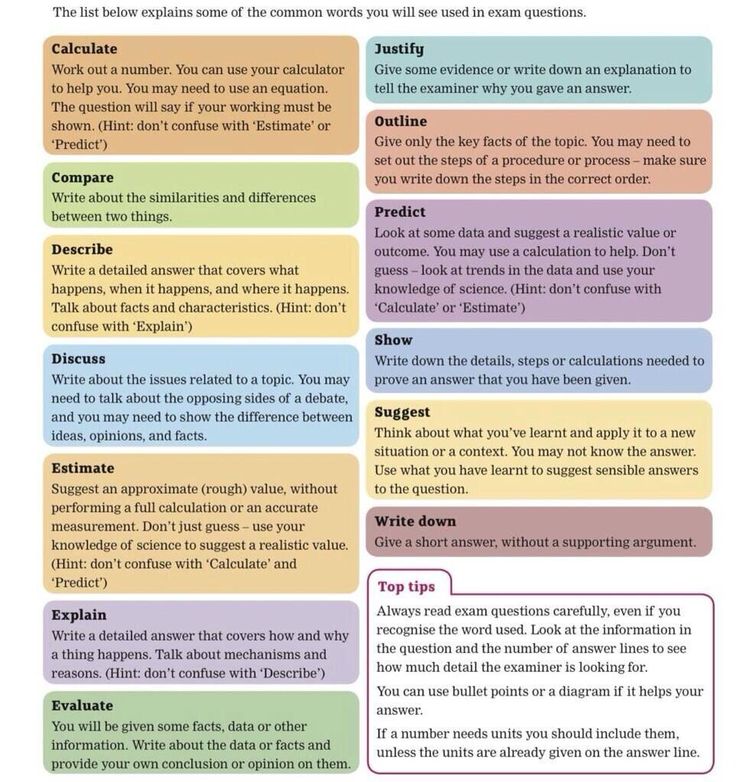 ... nine0003
... nine0003
Pregnancy or freedom?
When I got married in , I already decided that I had fulfilled my duty to society. I hoped that now those around me would leave me alone and graciously allow me to live the way I wanted to. But it was not there. “So what?.. Any news?” - this is how people who are vitally interested in my fate begin every conversation with me now: my mother, my mother-in-law, my school friends and my neighbor Praskovya Vasilievna from the third floor. They only care about one thing - when will I finally get pregnant? For some reason, they are sure that since motherhood is available to me, then I should crave it with all my being. nine0003
Not thirsty.
Have you ever wondered why women give birth to children? Well, with men, let's say, everything is clear: they, the poor, sometimes no one asks if they are ready to be parents, and very often they receive a new status according to the Zhvanetsky method: "One awkward movement, and you are already a father. " But women! In the end, the last fight of the sperm occurs on their territory, and they always have the opportunity to shout: "Breck!" So why are they silent? What makes them voluntarily agree to toxicosis, to stretch marks on their stomachs, to the inability to tie their own shoelaces and cut their toenails, to break, excuse me, perineum, cracked nipples, mastitis, sleepless nights, loss of intimacy, a complete lack of free time, a terrifying burden responsibility?.. After all, offer them any other occupation that entails such consequences, and they will reject it with indignation. And here they endure like partisans. Why? nine0003
" But women! In the end, the last fight of the sperm occurs on their territory, and they always have the opportunity to shout: "Breck!" So why are they silent? What makes them voluntarily agree to toxicosis, to stretch marks on their stomachs, to the inability to tie their own shoelaces and cut their toenails, to break, excuse me, perineum, cracked nipples, mastitis, sleepless nights, loss of intimacy, a complete lack of free time, a terrifying burden responsibility?.. After all, offer them any other occupation that entails such consequences, and they will reject it with indignation. And here they endure like partisans. Why? nine0003
It is said that this is due to the fact that women have a very strong maternal instinct. Like, this instinct is laid down by nature in the subconscious, is practically indestructible and does not depend on the human will in any way. Therefore, it pulls women to the hospital, like fish to spawn. And that's all. No comments.
There is certainly some truth in this. It is no coincidence that scientists have noticed that mentally handicapped women are unusually child-loving: instinct speaks much louder than reason in them. But most women still bear little resemblance to Pavlov's dogs, and - oh, what a brilliant brain breakthrough! - sometimes they think about what threatens them with refusing contraceptives. And still, damn it, they give birth. nine0003
It is no coincidence that scientists have noticed that mentally handicapped women are unusually child-loving: instinct speaks much louder than reason in them. But most women still bear little resemblance to Pavlov's dogs, and - oh, what a brilliant brain breakthrough! - sometimes they think about what threatens them with refusing contraceptives. And still, damn it, they give birth. nine0003
Of course, many people are lucky with companions, and they have a quite natural desire to materialize their feelings in the form of a “fruit of love”. They weigh all the “pros” and “cons” and, if after that the desire still does not disappear, they make a joint conscious decision to give life to a person about whom it will be possible to say: “This is Me and You.”
But this is not the case with everyone and not always. There are women who are motivated to motherhood for completely different reasons. For example:
a) fear of loneliness: “Let at least one living soul be near”; nine0003
b) difficulty using the word "no": "I didn't want to, but my husband insisted that I quit my job, have a son and learn how to bake apple pies";
c) a desire to strengthen relations: “He will definitely not get away from a child”;
d) "zalet": "Well, since it happened, there's nothing to be done, I'll have to give birth";
e) herd mentality: “All the girlfriends already have children, but why am I worse?”;
f) dependence on public opinion: “Oh, my God, what will Princess Marya Aleksevna say!”; nine0003
g) thirst for power: “This little baby will belong only to me!”;
h) a sense of doom: “Since I have a uterus, it must fulfill its biological function”;
i) false social attitude: "The value of a woman is in her children!"
I will not tire of repeating that such a scheme is beneficial primarily to men who, fearing competition from the weaker sex, form public opinion. Exorbitantly inflating the value of marriage and motherhood, they thereby only want to tie a woman to everyday life, limit her social growth. As the saying goes: "Woman's road - from the oven to the doorstep." nine0003
Exorbitantly inflating the value of marriage and motherhood, they thereby only want to tie a woman to everyday life, limit her social growth. As the saying goes: "Woman's road - from the oven to the doorstep." nine0003
Therefore, by the way, our highly moral society does not mind if a single woman gives birth to a child. Here again, a passionate male desire is triggered to tie a woman to a child, if she does not want to acquire a husband.
Against this background, any childless woman is almost always perceived as inferior. And even if she is quite satisfied with her life, successful in her professional activities and has impeccable health, they immediately begin to look at her meticulously: what is it with you, dear, if you have not yet given birth? It is useless to explain that so far, they say, I want to live for myself. These words will be unanimously called excuses and they will add: “Every woman dreams of becoming a mother. Because being childless is bad.” As a result, many ladies, crushed by public opinion, still decide to have a baby. Even lonely, financially unsecured and completely disappointed women go to this. And all because they were inspired: the most inferior woman is a woman without children. She may not have a spouse, home, money, or desire to live. The most important thing is that she had a child. nine0003
Even lonely, financially unsecured and completely disappointed women go to this. And all because they were inspired: the most inferior woman is a woman without children. She may not have a spouse, home, money, or desire to live. The most important thing is that she had a child. nine0003
However, most of our women still give birth spontaneously, “at the behest of their hearts”: they really liked the man, it was spring, their head was spinning, “it happened”, “it seems it's time” and in general - “come what may”. Russian culture evaluates such spontaneous decisions positively, the “childish” question, like any other, is decided to be solved impromptu in our country. On that, by the way, and hold on. Because, according to a survey by the Motherhood Support Fund, two out of three pregnancies in our country are unplanned. It's scary to think what would happen to the demographic situation if every pregnancy was planned. After all, our women have serious reasons not to give birth at all. nine0003
For example, many women experience fear of having a sick child due to birth trauma or genetic disorders. It is hard in our society to raise a sick child, and, as a rule, in such a difficult situation, protective fathers leave the family.
It is hard in our society to raise a sick child, and, as a rule, in such a difficult situation, protective fathers leave the family.
In general, a woman's desire to have or not to have a child directly depends on the quality of her relationship with her partner. A strong family and a man's willingness to be a father has a decisive influence on a woman. But quite often, women's expectations are very different from the actual behavior of men. Men are running away from responsibility, increasingly preferring civil or guest marriages. In addition, they are not taught "to want and raise children." So, according to a study of the life prospects of school graduates, the child is not included in the significant planned events in the life of young men. Why? Yes, because society is convinced that a child is a mother's concern. “The main social function of a woman is to feed a child, at least up to 5 years. Give the child back the mother!” - calls the popular analyst A. Shchegolev, thereby sending a traditional cultural message to men: "children are not a man's business. " nine0003
" nine0003
Having taken on the entire burden of parental responsibilities, a woman loses social and professional activity for two or three years, while the baby is growing up. Life offers her to choose one thing: either a child or a career. Choosing a child, a woman automatically receives material and moral costs - she will have to leave her job, then catch up, study, invest in herself.
Speaking of money. The share of expenses for children in the family budget of the average Russian family has been in recent years from 50 to 70 percent of the family budget. Given the fact that 38 percent of the country's population lives below the poverty line, we can say that the birth of a child for many Russians is too expensive. nine0003
What if a woman brings up a child alone? After all, with all due respect to the Family Code, she is unlikely to make a serious bet on alimony: in the current era of black cash, there are many ways to minimize them, and a woman with a child is completely financially dependent on the mood of her ex-spouse. I don't want to talk about child support. Now this benefit is purely symbolic, and only a person completely divorced from reality can take it into account.
I don't want to talk about child support. Now this benefit is purely symbolic, and only a person completely divorced from reality can take it into account.
As a result, it often turns out that after a divorce, a woman is left without money, without housing (at least without her former housing - the times are gone when husbands left apartments for their wives and left with one suitcase), but with a child in their arms, which is the most binds her hands in a natural way so that she can provide herself with housing and work. And employers have their own primordial truth: who wants to hire a single mother? nine0003
In general, it turns out that having children in our state is unprofitable. And the maternal instinct is very often drowned out by the instinct of self-preservation. There is nothing surprising in the fact that Russia, along with Spain and Italy, now tops the list of industrialized countries with ultra-low fertility, that is, with a level that is far below the threshold of simple population reproduction. And if events continue (divorces in two-thirds of marriages, sexual cohabitation, so-called civil marriages, social vulnerability of mothers, etc.), demographers say that by 2075 we should expect a reduction in the number of Russians to 50-55 million people. nine0003
And if events continue (divorces in two-thirds of marriages, sexual cohabitation, so-called civil marriages, social vulnerability of mothers, etc.), demographers say that by 2075 we should expect a reduction in the number of Russians to 50-55 million people. nine0003
Only by cultivating men's responsibility for their reproductive behavior, only by combating poverty and maternal dependence, can we expect our women to bear children without fear.
Now I want to surprise the champions of biological instinct with the fact that there are women who do not give birth to a child because ... they do not want one. Yes Yes. Someone has a maternal feeling initially, someone appears later, and some never arise. And there is nothing wrong with that. After all, it is much more dangerous to have unwanted children without having such a need than, having soberly assessed your capabilities and desires, asking yourself ten, twenty times: “Am I ready?” Answer honestly to yourself: “No.” nine0003
Personally, I don't want to have a baby yet. This is a lot of work for which I am not yet ready. They say that all the hardships are compensated by the joy of motherhood. I willingly believe, but since this joy is not familiar to me, I cannot feel it in advance. But I can feel the difficulties of motherhood long before the birth of a child. Knowledgeable people say that for this it is enough to perform a few simple procedures:
This is a lot of work for which I am not yet ready. They say that all the hardships are compensated by the joy of motherhood. I willingly believe, but since this joy is not familiar to me, I cannot feel it in advance. But I can feel the difficulties of motherhood long before the birth of a child. Knowledgeable people say that for this it is enough to perform a few simple procedures:
a) tie a bag of beans to the stomach for nine months, after the expiration of the term, lighten the bag by ten percent; nine0003
b) throughout the night to rock the telephone directory of Moscow and the Moscow region and sing to him the song “Sleep, my joy, sleep” without interruption;
c) smear all the furniture in the apartment from top to bottom with semolina, and smear the computer with jam;
d) paint new wallpapers with felt-tip pens;
e) Forget fancy handbags and switch to shopping bags full of napkins, mints, chocolate chip cookies, bottles, and transforming robots; nine0003
f) memorize the story of Little Red Riding Hood and repeat it five times every evening as a reinforcement;
g) prepare comprehensive answers to the questions: “Why is the sky blue?”, “Who blows the wind?”, “Why does this aunt have a mustache?”.
And that's not all. In Cathy Lett's book "Birth Attraction," one of the characters, an experienced dad, informs his pregnant girlfriend about what awaits her in this way: "The child will eat dead bugs. He will pick his nose and lick his snot. After a week of trying to feed him mashed wheatgrass, you'll want to stick your head in the grinder. But you can't do that because the baby has already put his favorite guinea pig in there. Besides, you just won't have time to commit suicide, you'll be too busy gluing paper napkin airplanes and toilet paper space helmets." nine0003
Like this. Maybe when I become a mother, all this will touch me, but for now I don’t want to. I do not want to talk only in a whisper (if the child is sleeping) or only screaming (if the child is awake). I do not want to mask dark circles under the eyes and fall from fatigue. I don’t want to go shopping with a stroller and suffer with eternal feeding “for mom, for dad”. I don't want to repeat every word twice. Twice. And be a clown. And follow. And hide razors, and lock up cleaning products, and only read large print books. I don’t want to think about where to put the child to go on vacation, and what to do if there is nowhere to put him. I don’t want to listen intensely to the surrounding sounds during sex: is the baby running here, or is it crying? nine0003
Twice. And be a clown. And follow. And hide razors, and lock up cleaning products, and only read large print books. I don’t want to think about where to put the child to go on vacation, and what to do if there is nowhere to put him. I don’t want to listen intensely to the surrounding sounds during sex: is the baby running here, or is it crying? nine0003
There are people who, sweating, explain to me that my position is that of an egoist. I agree. I am an egoist. And when someone in my presence boasts that he, they say, unlike me, has three children, I, as a true egoist, inquire: “Three children? .. Wonderful. What else can you do?"
Every person has the right to decide for himself how to deal with his life. The wonderful writer Galina Shcherbakova once said: “You can not love your homeland if you do not find in it features that are pleasant for you.” And I want to add to these words no less "seditious": you can not give birth to children if you do not feel the need to be a mother. Reproductive function is not an obligation imposed on a woman by nature, but only an opportunity provided by her. And a woman who decides “to have or not to have” does not need to look back at public opinion in the face of grandmothers on a yard bench. The recipe for female happiness is quite simple: you need to be guided primarily by your desires, and not by others. nine0003
Reproductive function is not an obligation imposed on a woman by nature, but only an opportunity provided by her. And a woman who decides “to have or not to have” does not need to look back at public opinion in the face of grandmothers on a yard bench. The recipe for female happiness is quite simple: you need to be guided primarily by your desires, and not by others. nine0003
Natalya RADULOVA
Photos used in the material: Vladimir MISHUKOV
I don’t want children: the reasons why this happens
Boys play with cars, girls become mother daughters, and when they grow up, they grow up than dreamed of in childhood.
Website editor
Tags:
Children
Parenthood nine0003
have a baby
Shutterstock
Boys play with cars, girls play mother-daughters, and when they grow up, they get what they dreamed of in childhood. The French say that the first child is the last doll. But what if you've never been interested in dolls?
The French say that the first child is the last doll. But what if you've never been interested in dolls?
Do not self-medicate! In our articles, we collect the latest scientific data and the opinions of authoritative health experts. But remember: only a doctor can diagnose and prescribe treatment. nine0003
You played with cars like boys. Or instead of baby dolls, you had Barbie beauties who clean feathers in deck chairs and have fun at parties, and do not feed a screaming child at all and do not change his diapers. The value of role-playing games cannot be underestimated. With their help, we master the world by fitting ourselves into it. If the desire to try on the role of a mother did not arise at the age of five, is it any wonder that it does not come even at thirty?
Wanting a child is natural. This is how nature intended. But not wanting a baby is also normal. After all, we are not only natural beings, but also social ones. Above the basic instincts - self-preservation or procreation - we have so much stuff on top that sometimes they are unable to reach out to consciousness. You build a life, and the result completely satisfies you. There is no feeling that someone or something is missing in her. And since everything is there, why change something? You never know where these changes will lead you. Will it suddenly get worse? And is it possible to want something that you have never tried? Sea urchin caviar, for example. You haven’t eaten it before, so you don’t feel longing for it. You didn’t try on the role of a mother either - you didn’t play with dolls, you didn’t sit with your younger brothers and sisters, you didn’t babysit your nephews, so you can’t know for sure whether it’s yours or not. By the way, the Chinese, in order to reduce the birth rate, obliged their citizens to have only one child, after 20-30 years they were faced with the fact that these only children who grew up without brothers and sisters do not want their own babies at all. Because they had no experience of caring for a baby in the parental family. nine0003
You build a life, and the result completely satisfies you. There is no feeling that someone or something is missing in her. And since everything is there, why change something? You never know where these changes will lead you. Will it suddenly get worse? And is it possible to want something that you have never tried? Sea urchin caviar, for example. You haven’t eaten it before, so you don’t feel longing for it. You didn’t try on the role of a mother either - you didn’t play with dolls, you didn’t sit with your younger brothers and sisters, you didn’t babysit your nephews, so you can’t know for sure whether it’s yours or not. By the way, the Chinese, in order to reduce the birth rate, obliged their citizens to have only one child, after 20-30 years they were faced with the fact that these only children who grew up without brothers and sisters do not want their own babies at all. Because they had no experience of caring for a baby in the parental family. nine0003
Contraceptive device
Appetite, as you know, comes with eating. And the need for motherhood too. Previously, nature did not need to enlist our desire to have a child. Because if we choose the right moment, we can last up to a hundred years. And it doesn't work for her! This is why our instincts make us want not so much children as sex. After all, before, if pregnancy happened, there was no longer much choice - to give birth or not to give birth.
And the need for motherhood too. Previously, nature did not need to enlist our desire to have a child. Because if we choose the right moment, we can last up to a hundred years. And it doesn't work for her! This is why our instincts make us want not so much children as sex. After all, before, if pregnancy happened, there was no longer much choice - to give birth or not to give birth.
With the advent of contraceptives, systemic failures occurred in this scheme. The initiative has passed to us. We are free to choose the perfect time, to wait for the desire to have a child to come. But the trouble is that desire does not come to everyone and the moment is not always right. In addition, if you protect yourself from pregnancy all your conscious life, its denial takes root in the subconscious deeper than you can imagine. There is a persistent contraceptive attitude, erasing the desire to become a mother. You listen to yourself, but you do not feel any need for a child and decide that you are not yet ripe for this. And time is running out. nine0003
And time is running out. nine0003
“I think that if a woman does not want a child by 30, then most likely she will not want one,” Anyuta says. - The further, the less you want, because with age, the character loses its elasticity. You become less patient, you get used to freedom. If you don't want to, maybe you don't need to. Not everyone can be mothers! But if the question of why there is no such desire does not give rest, then there is still a need for a baby. Even if at the level of feeling that without children it may be easier, but not quite right. It's good that it came to me in time. I gave birth to a child without the call of instinct, at my own peril and risk. Partly for show, to "shoot back", and partly out of curiosity, to see what happens from my husband and I's genetic mixture. I was not torn apart by maternal hunger, but I do not regret at all that I did not wait until I want to become a mother. The instinct never awakened. A sense of duty and conscious love awakened, which arises after you recognize a person and put strength into him. You can madly want children, but be a bad mother. Or vice versa." nine0003
You can madly want children, but be a bad mother. Or vice versa." nine0003
Memory of a girl
The desire to have children visits any of us after puberty. But it is so instinctive that it is quickly forgotten if it is not realized. And by 25, you already believe that you "never wanted a child."
Nature's trap
One of my acquaintances unexpectedly experienced an acute need to become a mother after practice in a children's home. As psychologists say, she fell into a prolactin trap. Prolactin is a pituitary hormone that awakens the parental instinct. This is a time bomb laid by nature under the foundation of indifference to the children's theme. As long as you keep a safe distance from shops for new mothers, parks where they walk with strollers, sandboxes and playgrounds, prolactin does not remind you of anything. Because there is no reason! But one has only to press a warm, sleepy, pink, smelling of milk and baby powder baby (one's own or someone else's) to the chest, as the mother's hormone begins to be intensively produced in the body, stunned by surprise. Sometimes in such quantity that nulliparous girls even have milk! For some, it’s enough just to wander into the department where they sell rompers and undershirts for this biological timer to work. nine0003
Sometimes in such quantity that nulliparous girls even have milk! For some, it’s enough just to wander into the department where they sell rompers and undershirts for this biological timer to work. nine0003
But the most powerful release of prolactin occurs during pregnancy and especially during childbirth. That is why surrogate mothers, who agreed to be incubators for someone else's baby, suddenly become imbued with irrational love for him. And they do not agree to give the child they initially did not want to biological parents for any millions. And for those, too, the parental hormone is raging with might and main, while they watch the surrogate mother and inflame themselves with preparations for the birth of the crumbs. Do you want to want a baby? Get closer to the pregnant woman! nine0003
“My friends, as if by agreement, go pregnant,” says 27-year-old Albina. - There are five of them! Maybe this is a herd feeling, but even I, who did not plan anything like this, suddenly wanted to join their company. I looked at the rounded tummies, walked around the Children's World with each of them and realized that I wanted the same thing. Before, there was no such desire. Honestly!"
I looked at the rounded tummies, walked around the Children's World with each of them and realized that I wanted the same thing. Before, there was no such desire. Honestly!"
Coincidence
People sometimes don't want to have children because for some reason they can't. They instill this reluctance in themselves, because not wanting is still better than not being able. The most obvious is physical incapacity. A friend keeps telling everyone that she doesn't want to "get involved with this." And then it suddenly turns out that she, it turns out, has been treated for infertility for more than a year. There is no result, so she convinces herself and others that it didn’t hurt and it was necessary. It’s easier without a child: you won’t have to go on maternity leave, drop out of life, your figure won’t float. So that's great! nine0003
Someone understands that they will not support the child financially. They just want children . .. But they consider themselves unworthy (“with such and such a salary!”) To become parents. And they put off the birth of a child until later. And when they achieve career success and financial well-being, they simply burn out, losing their desire for motherhood. Thirty-year-old anhedonia - a loss of interest in everything that is really worth living for - is a common phenomenon, especially in large cities. You just need to shake it up. To have a break. Remember why all these races with obstacles up the career ladder were started. Consider the design of the nursery, choose wallpaper for it, look after the crib. Any step in this direction is a way to awaken the instincts you have suppressed. nine0003
.. But they consider themselves unworthy (“with such and such a salary!”) To become parents. And they put off the birth of a child until later. And when they achieve career success and financial well-being, they simply burn out, losing their desire for motherhood. Thirty-year-old anhedonia - a loss of interest in everything that is really worth living for - is a common phenomenon, especially in large cities. You just need to shake it up. To have a break. Remember why all these races with obstacles up the career ladder were started. Consider the design of the nursery, choose wallpaper for it, look after the crib. Any step in this direction is a way to awaken the instincts you have suppressed. nine0003
Some anxious people start to panic at the mere thought of children. The child will be completely dependent on me. What if I do something wrong and he gets sick? If I drop it, will he break something?
Or maybe you don't want a baby because the wrong man is next to you. You don’t admit it to yourself, but you feel with your spinal cord that the appearance of a third person will not strengthen your union, but, on the contrary, will only complicate everything. “As I understand now, at one time I didn’t want children, because I didn’t trust my husband and was ashamed in advance of the hypothetical fate of a single mother,” recalls Stasya. “For the most part, I was right. Although after a conversation with a psychologist (“since he brought you here, it means it’s important for him”), she decided. And the husband ran away as soon as the baby's teeth began to cut: children's cries prevented him from sleeping. And when I met my man, the desire to give birth arose almost immediately. I took this feeling as a guarantee that everything will be fine with us. And I was not mistaken!” nine0003
You don’t admit it to yourself, but you feel with your spinal cord that the appearance of a third person will not strengthen your union, but, on the contrary, will only complicate everything. “As I understand now, at one time I didn’t want children, because I didn’t trust my husband and was ashamed in advance of the hypothetical fate of a single mother,” recalls Stasya. “For the most part, I was right. Although after a conversation with a psychologist (“since he brought you here, it means it’s important for him”), she decided. And the husband ran away as soon as the baby's teeth began to cut: children's cries prevented him from sleeping. And when I met my man, the desire to give birth arose almost immediately. I took this feeling as a guarantee that everything will be fine with us. And I was not mistaken!” nine0003
NET-hormones
Prolactin has opposite hormones – adrenaline, cortisol and testosterone. They keep you constantly ready to fight, give you strength and courage. .. But they reduce your femininity. The adrenal glands of zealous careerists are constantly releasing these "no-hormones" into the bloodstream. Therefore, if you are worried about the lack of basic instinct, stop. Sadly, but a break in the career race will have to be done. At least not for long.
.. But they reduce your femininity. The adrenal glands of zealous careerists are constantly releasing these "no-hormones" into the bloodstream. Therefore, if you are worried about the lack of basic instinct, stop. Sadly, but a break in the career race will have to be done. At least not for long.
I don't want to be like my mother! nine0125
If you didn’t have a relationship with your mother, then not wanting to have a child is a continuation of the child’s rebellion: “I don’t want to be like her!” Psychologists call this a violation of parental self-identification. It can also relate to the relationship with the father: he left the family, left you, little one, it hurt, and you don’t want your baby to experience the same pain. But in fact, more than anything in the world, you need to go through this path again with your child, rewriting your own childhood along the way, correcting in it what hurt you so much and still haunts you. nine0003
nine0003
“I'm about to be 27, married for 7 years, no children, because in all this time we have never tried to have them,” says Natasha. We protect ourselves like spies. We both can't stand these little, screaming, always demanding creatures. I want to live for my own pleasure, not everyone has children, there are so many interesting things in life ... Take my mother. She was a promising pianist, but she gave birth to me, putting an end to her musical career. So what? Dad left when I was not yet a year old. Mom started all over again with another man. But without children. Including - and without me. I grew up with my grandparents, I saw my mother only on Saturdays. Once a month. Well, why did she give birth to me? As a child, I was terribly worried that she was not around, I felt that I was preventing her from enjoying life, that I was not worthy of her love. And I'm not going to repeat her mistakes. And to friends who stutter about children, I always answer: “You need it - you give birth, but leave us alone! We don’t love children and we’re not going to cripple them with our dislike!” nine0003
Behind the facade of the child-free slogan there is always some kind of story. People do not want to transmit their childhood pain to generations. You can't do without a psychologist! As, however, in most cases, when the parental instinct refuses to remind of itself.
People do not want to transmit their childhood pain to generations. You can't do without a psychologist! As, however, in most cases, when the parental instinct refuses to remind of itself.
Wanting children is the norm of life, the idea of nature. But gradually you get used to your reluctance - and it’s already somehow embarrassing to refuse it, to awaken parental feelings in yourself: you will have to explain to everyone around why you didn’t want to, but gave birth. So don't drive yourself into a corner! From love to hate, as you know, there is only one step. And from unwillingness to have a child to the desire to give birth to him at all costs - too. You'll see! nine0003
Slavic cross
In the era of perestroika, no one wanted to have children - it was just terrible: criminal lawlessness, total shortages (diapers and milk disappeared from stores, and the most necessary medicines from maternity hospitals), the sexual revolution and mass unemployment.
